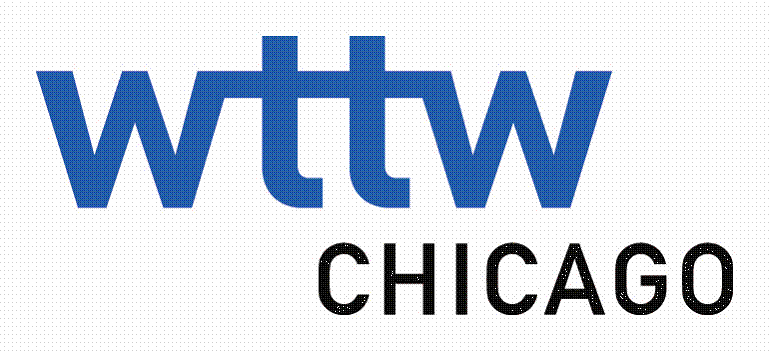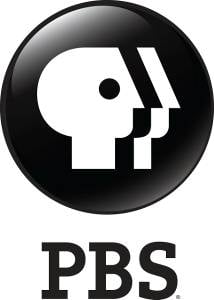For immediate release
Chicago, IL - February 20, 2015
A staggering 50 percent of American adults suffer from a chronic disease such as diabetes, heart disease, obesity, and arthritis – and one in four has two or more chronic health conditions. But for too long, the healthcare debate has focused on who should pay rather than on the care patients receive. With 75 cents of every healthcare dollar being spent on chronic diseases, shouldn’t we be asking if the care we receive is actually making us healthier?
Filmmaker David Grubin, the son of a general practitioner, takes his camera across the country to uncover a quiet revolution happening in medicine. From Maine to Mississippi, Alaska to California, he visits physicians, nurses, and other healthcare professionals who are placing the patient at the center of their practice – transforming the way medical care is delivered while lowering costs. The film shows how a patient-centered philosophy can improve health outcomes and enrich the lives of patients.
A presentation of WTTW Chicago, Rx: The Quiet Revolution premieres Thursday, April 2, 2015, 9:00-10:30 p.m. ET (check local listings) on PBS.
Rx: The Quiet Revolutionexplores the intimate relationship between patients and the doctors, nurses, and health care professionals of every kind who care for them.The documentary focuses on a health care model that puts the patient center stage, emphasizing collaboration and partnership, empathy and compassion.
The stories in the film come from unexpected places: a health system in Alaska owned and run by native Alaskans; a group family practice in Belfast, Maine; an ingenious alternative to nursing home care in San Francisco, California; and a small town in the Mississippi Delta. “So much of what we hear about our healthcare system is so negative, but the people we met while making this film are passionate about making a difference in their patient’s lives,” said Grubin. “It’s inspiring to see how they’re combining the old-school, hands-on approach of my father’s era with new medical discoveries and technologies. When patients feel included, respected, and empowered, great things can happen.”
A robust companion website (rxfilm.org) also illuminates the film’s complex, interconnected issues by exploring our nation’s health crisis and solutions to address them. The website features include an interactive map, Q&A’s with medical experts, profiles of series participants, an interview with filmmaker David Grubin, and additional web-exclusive video content.
* * *
The Stories
A community practice in Belfast, Maine
Dr. David Loxterkamp is one of the new breed of primary care practitioners. His father was a small town country doctor and he followed in his father’s footsteps, setting up a private practice in Belfast, Maine, but after 20 years he set out in a new direction. He assembled a team of physicians, nurses, medical assistants, a psychologist, and others to create an innovative, team-based group practice. Today, Loxterkamp’s office is a hub of activity, but a patient never waits for an appointment.
Many of Dr. Loxterkamp’s patients suffer from chronic, debilitating diseases and can’t always make it to their appointments. Reviving an age-old practice, Dr. Loxterkamp makes house calls. Seeing a patient at home affords him a true look at a patient’s daily life and obstacles. When a sudden increase in the number of patients with addictions to painkillers took him by surprise, his team responded with a medically assisted recovery program that has helped many. “We want our practice to revolve around the patient’s needs,” Loxterkamp says, “not our own.” This humanistic, patient-centered model has proven effective: a third of the patients in the practice’s smoking cessation program have quit, emergency room visits have dropped by 40 percent, and the average blood sugar levels of patients with uncontrolled diabetes has dropped by 100 points.
Diabetes in the Delta
The state of Mississippi ranks last in household income and first in diabetes; 40 percent of the children under 18 are considered obese. But in Ruleville, a small town in the Mississippi Delta, they’re trying to do something about it with help from the state capital in Jackson and the University of Mississippi Center for Telehealth. By providing diabetic patients with computer tablets that monitor blood sugar levels on a daily basis, Ruleville’s Sunflower Health Clinic is empowering patients to take care of themselves, combining technology with personal care at the clinic. “The way to control this disease is with constant communication with our patients,” says Joanie Perkins, the clinic’s Chief Development Officer.
Since the program began, ER visits and glucose levels in Ruleville are falling and patients who once felt helpless about their diagnosis are now taking charge of their health. “A decision to take medicine, eat healthy and exercise is an individual choice,” said Dr. Kristi Henderson, Chief Telehealth and Innovation Officer. “And we want to make that easy and support that effort.”
Native Alaska: The Southcentral Foundation
In little more than two decades, native Alaskans have converted a failing healthcare system run by the U.S. Indian Health Service into a community-owned and operated organization delivering care that emphasizes cultural sensitivity and preventive medicine. As Katherine Gottlieb, a Sugpiak native Alaskan and CEO of the Anchorage-based Southcentral Foundation puts it, “Medicine is bigger than tests, diagnosis, pills and procedures. It’s about human beings and relationships.”
Southcentral calls their patients “customer-owners” and considers them active participants on the road to wellness. Responsible for the health of 65,000 Alaskans spread across 107,000 square miles, the organization has developed ingenious strategies for bringing quality team healthcare to remote locations that have no doctors. At the same time, they offer their patients both medical care based on the western, scientific model and traditional native Alaskan forms of healing. In addition, Southcentral is on the frontlines in the battle against the community’s epidemic of child abuse and domestic violence. “The most important determinant of anyone’s health statistically, across the whole population, is the amount of self-confidence they have,” said Dr. Doug Eby. “This is a customer-owned, customer-driven journey. This is built around what Alaskan native people know works for them to get to a healthier place.”
A nursing home alternative in San Francisco’s Chinatown
The vast majority of elderly Americans do not want to end their lives in a nursing home. On Lok, in San Francisco’s Chinatown, makes it possible for aging seniors with chronic illnesses or disabilities to grow old in their own homes. On Lok provides medical care along with house cleaning, shopping, laundry, and other services in the home. “We bring our elderly participants to a center during the day and bring them back home every evening,” said Dr. Jay Luxenberg, On Lok’s Chief Medical Officer. “They can see a social worker, eat healthy food, enjoy friends during the day, and sleep in their own beds at night. It’s a privilege to take care of people who have made it to their 90’s and 100’s and help them in their final years live with dignity and hopefully stay at home.” On Lok has grown from a small local service to a nationwide program called Pace Lifeways that serves a variety of ethnicities.
* * *
Rx: The Quiet Revolution is made possible by Lead National Sponsor the American Medical Association, as well as UnitedHealthcare, the Susan and Leonard Feinstein Foundation, The William and Phyllis Mack Family Foundation, Roy J. Zuckerberg Family Foundation, Primary Care Progress, Sodexo, Harvard Medical School Center for Primary Care, and an anonymous contributor.
About the Filmmaker
David Grubin is a director, writer, producer, and cinematographer who has produced over 100 films, ranging from history to art, from poetry to science, winning every award in the field of documentary television including two Alfred I. duPont Awards, three Peabody Awards, five Writers Guild Awards, and ten Emmys. His biographies for the PBS series American Experience – Abraham and Mary Lincoln: A House Divided, LBJ, Truman, TR: The Story of Theodore Roosevelt, and FDR – have set the standard for television biography. His five-part series for PBS, Healing and the Mind with Bill Moyers, won numerous awards, and the companion book, for which he was executive editor, rose to number one on The New York Times bestseller list, remaining on the list for 32 weeks. His other films include The Buddha, The Trials of Robert Oppenheimer, The Jewish Americans, The Secret Life of the Brain, Degenerate Art, Napoleon, The Mysterious Human Heart and, most recently, a documentary about languages in danger of extinction, Language Matters with Bob Holman.
Credits
Written, produced and directed by: David Grubin
Editor: Deborah Peretz
Additional Editor: Sandra Christie
Directors of Photography: James Callanan, Bob Richman, Dan Krauss
Additional Photography: David Grubin
Original Music: Michael Bacon
Executive Producers: David Grubin and Jennifer Mieres
This film was produced by David Grubin Productions in association with WTTW.
About WTTW Chicago
WTTW Chicago, a division of Chicago PBS station WTTW and Window to the World Communications, Inc., is a premier producer and presenter of original, high-quality programming for both public and commercial television broadcast and online distribution.For almost 60 years, WTTW Chicago has introduced a wide array of groundbreaking cross-platform content – reflecting the world’s rich and diverse arts and entertainment scene as well as education, politics, public affairs, business, and religion – to a national audience. Its landmark innovative series and original productions include the critically-acclaimed performance showcases Soundstage®, Legends of Jazz with Ramsey Lewis; Proclamation of Hope and David Broza at Masada: The Sunrise Concert; cultural series Grannies on Safari; MEXICO – One Plate at a Time with Rick Bayless and Pedal America; the business series CEO Exchange; the documentary series Retirement Revolution; the weekly movie review series Ebert Presents At the Movies; the creative arts series The Artist Toolbox; the transmedia online educational children’s properties Mission to Planet 429 and UMIGO, and the award-winning children’s series WordWorld. Learn more about WTTW Chicago national productions. More information about WTTW is available at wttw.com, or by following WTTW on Twitter and Facebook.
About PBS
PBS, with its more than 350 member stations, offers all Americans the opportunity to explore new ideas and new worlds through television and online content. Each month, PBS reaches nearly 109 million people through television and over 28 million people online, inviting them to experience the worlds of science, history, nature and public affairs; to hear diverse viewpoints; and to take front row seats to world-class drama and performances. PBS’ broad array of programs has been consistently honored by the industry’s most coveted award competitions. Teachers of children from pre-K through 12th grade turn to PBS for digital content and services that help bring classroom lessons to life. PBS’ premier children’s TV programming and its website, pbskids.org, are parents’ and teachers’ most trusted partners in inspiring and nurturing curiosity and love of learning in children. More information about PBS is available at www.pbs.org, one of the leading dot-org websites on the Internet, or by following PBS on Twitter, Facebook or through our apps for mobile devices. Specific program information and updates for press are available at pbs.org/pressroom or by following PBS Pressroom on Twitter.
For downloadable images, visit pbs.org/pressroom.




